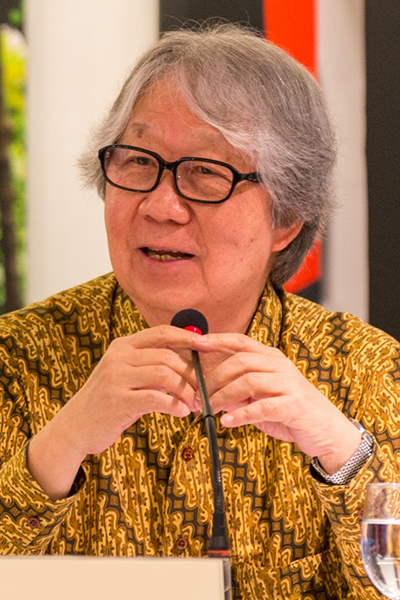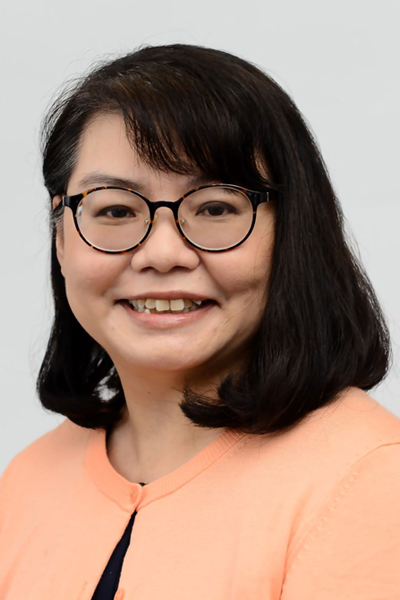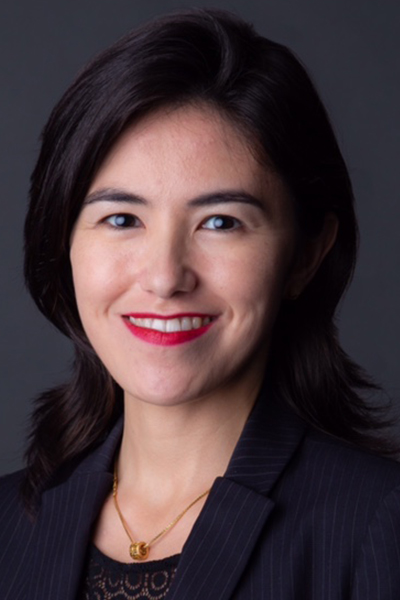2025 ASIL Abroad - Singapore
ASIL Abroad 2025 Speakers and Co-Chairs

Tommy Koh
(Keynote Conversationalist)

Mélida Hodgson
(Keynote Conversationalist)

Rena Lee
(Keynote Speaker)

Daniel Bethlehem
(Keynote Plenary)

Joan Donoghue
(Keynote Plenary)

Gabrielle Kaufmann-Kohler
(Keynote Plenary)

Marcin Czepelak
(Keynote Plenary)

Celine Lange
(Co-Chair)

Natalie Morris-Sharma
(Co-Chair)

Jarrod Wong
(Co-Chair)
Thank you to all who attended.
On September 3-4, 2025, in Singapore, the American Society of International Law convened its second ASIL Abroad Meeting, continuing with the theme of the 119th Annual Meeting, "Traditions and Transitions in International Law". The Meeting - the first in Asia - explored different perspectives, leveraging off the meeting venue in Singapore. The meeting took place at the RELC International Hotel.
30 Orange Grove Rd, Singapore 258352
MAP


Description: More than twenty years after the entry into force of the International Criminal Court (ICC) Statute on 1 July 2002, the UN General Assembly Sixth Committee decided by consensus in November 2024 to launch the process to negotiate an international convention on crimes against humanity, based on the draft Articles on Prevention and Punishment of Crimes against Humanity adopted in 2019 by the UN International Law Commission (ILC).
The purposes of the panel will be to explore the articulation of the draft treaty with existing instruments such as the ICC Statute, or its relationship with other ILC work on the Immunity of State Officials. The interventions will also aim to critically examine the pending issues raised by the current ILC draft articles on gender-based violence, enforced disappearance—in light of the 2006 UN Convention on Enforced Disappearance of Persons—or the rules governing the establishment of domestic criminal jurisdiction.
Speakers:
- Hélène Tigroudja, Visiting Research Professor, Centre for International Law / Aix-Marseille University (moderator)
- Andrea Cayley, Executive Director, Center for Law and Global Affairs / Professor of Practice, Sandra Day O'Connor College of Law
- James Low, Deputy Senior State Counsel, Attorney-General's Chambers, Singapore
- Melanie O'Brien, Associate Professor of International Law & Deputy Head of School (Research), University of Western Australia Law School
- Rashmi Raman, Research Fellow, Centre for International Law, Singapore
Description: The post-Cold War order is over, but what comes next remains unclear. The U.N. Secretary-General Antonio Guterres has described the current political moment as a "purgatory of polarity." In this changing world, commitment to international law is receding and the effectiveness of international institutions is eroding. These trends are driven by both the abdication of leadership by the founders of the post-World War II order and the decline of popular trust in global governance.
This panel explores these realities and discusses how the international legal order can be reinvigorated to provide guardrails that protect against further instability and conflict. Panelists will examine the challenges facing multilateral diplomacy and propose strategies for strengthening international institutions and reinforcing adherence to international legal norms in a divided world
Speakers:
- Charis Tan, Partner, Peter & Kim (moderator)
- Simon Chesterman, David Marshall Professor of Law & Vice Provost (Educational Innovation), National University of Singapore
- Olufemi Elias, Judge ad hoc, International Court of Justice/ Visiting Professor in international law at Queen Mary University of London
- Akiko Ito, Executive Director, UNITAR CIFAL Japan

Description: One of the first announcements Donald Trump made upon his inauguration as the 47th U.S. president on January 20, 2025, was the country’s withdrawal from the Paris Agreement. Less than two months later, the United States also withdrew from the Just Energy Transition Partnership (JETP), affecting over US$3 billion of American commitments—mostly commercial loans—in Indonesia and Vietnam. These actions have threatened the pace and ambition of state and corporate climate action globally.
This panel will critically examine the setbacks and challenges of global climate action in the wake of Trump’s second presidency while highlighting success stories and ongoing legal efforts to combat climate change. Speakers will explore how governments, businesses, and civil society can adapt strategies and legal tools to maintain momentum despite political headwinds.
Speakers:
- Linda Yanti Sulistiawati, Senior Research Fellow, APCEL/ Associate Professor of Law, Universitas Gadjah Mada (moderator)
- Beatriz Garcia, Associate Professor of Law, Sorbonne Abu Dhabi
- Elizabeth Wu, Legal Consultant, ClientEarth
- Junice Yeo, Executive Director, Eco-Business
Description: Since returning to office in 2025, President Donald Trump has renewed efforts to reshape global trade through his “Reciprocal Tariff Policy,” which ties U.S. tariffs to those imposed by its trading partners. While promoted as a fairness-based approach, the policy has created significant disruption to the rules-based multilateral trading system, especially the World Trade Organization (WTO).
This panel will explore the legal and policy dimensions of the new tariff strategy. What are the core features of the policy? How does it align—or conflict—with existing WTO rules, particularly the principles of Most-Favored-Nation treatment and binding commitments? What legal justifications has the U.S. offered, and how are other countries responding?
Beyond legality, the panel will assess the broader economic and geopolitical consequences of this shift. Is the world heading toward deeper trade fragmentation? What are the implications for developing economies and open trading nations?
Southeast Asia, in particular, stands at a crossroads. As a region reliant on both Chinese and American markets, how should ASEAN economies position themselves in response to growing unilateralism? Should they invest more in regional trade integration, seek to strengthen WTO reform, or pursue other strategies?
Featuring leading experts from government, academia, and legal practice, this panel will provide a timely and multifaceted discussion on the future of trade governance in an increasingly transactional world. The session aims to equip participants with a clearer understanding of what the “new rules” of global trade may look like—and how countries can respond.
Speakers:
- Henry Gao, Professor of Law, Singapore Management University (moderator)
- Kala Anandarajah, Head, Competition & Antitrust and Trade, Rajah & Tann
- Mary Elizabeth Chelliah, Principal Trade Specialist, Ministry of Trade and Industry
- Eugene Lim, Founding Principal, WTS Taxise
- James J. Nedumpara, Head & Professor, Centre for Trade and Investment Law, Indian Institute of Foreign Trade, New Delhi
- Greg Shaffer, Scott K. Ginsburg Professor of International Law, Georgetown University Law Center

Description:
The digital revolution is reshaping the international human rights landscape—with profound challenges for the existing legal framework. At the heart of this transformation are questions about the extraterritorial application of human rights obligations in the digital sphere, jurisdictional complexities in cyberspace, and the accountability of transnational technology corporations under international law.
Technologies such as artificial intelligence, blockchain, surveillance systems, and digital platforms are transforming how rights are exercised and protected. The inherently cross-border nature of digital technologies offers significant potential to enhance access to information, healthcare, education, participation, and privacy protection. At the same time, these technologies are reshaping how abuses occur, exacerbating risks of human rights violations, including privacy breaches, algorithmic discrimination, and the transnational spread of disinformation. Both the opportunities and the challenges fuel the regulatory instinct of states seeking to reclaim technological and digital sovereignty.
Few binding international legal instruments are dedicated to human rights in the digital space. Soft-law instruments developed by international organizations, such as the UNESCO Recommendation on the Ethics of Artificial Intelligence and the OECD Guidelines for Multinational Enterprises, seek to fill regulatory gaps. This panel will explore how international human rights law—rooted in instruments such as the International Covenant on Civil and Political Rights (ICCPR) and the International Covenant on Economic, Social and Cultural Rights (ICESCR)—addresses the implications of emerging technologies. It will examine whether existing treaty obligations adequately regulate state and corporate conduct in the digital sphere, or whether the evolving technological landscape requires the development of new international norms and standards, such as those in the UN Global Digital Compact and various regional frameworks.
By situating the discussion within broader debates on technological sovereignty, cross-border data governance, and the human rights responsibilities of non-state actors, the panel will assess how international law can evolve to safeguard fundamental rights while fostering inclusive and accountable technological progress. The session will identify pathways toward a human-centric approach to global digital governance that upholds human dignity, equality, and accountability in an era of rapid technological change.
Speakers:
- Georgios Dimitropoulos, Professor of Law & Associate Dean for Research, Hamad Bin Khalifa University College of Law (moderator)
- June Park, Nonresident Fellow, Middle East Council on Global Affairs
- Elena Pribytkova, Senior Research Fellow, Centre for International Law, Singapore
- Josh Lee Kok Thong, Managing Director, Asia-Pacific, Future of Privacy Forum
- Barbara Tsai, Assistant General Counsel (Asia Head of Compliance), Microsoft
Description: International courts and tribunals appear to be playing an increasingly prominent role in shaping the global legal order, yet their authority and effectiveness are continually tested by shifting geopolitical realities and questions of legitimacy. This panel will convene leading experts and judges to critically examine the evolving landscape of international dispute resolution as it pertains to states, corporations, and individuals.
In particular, the panelists will draw on their diverse expertise and recent casework to consider whether there is a genuine trend toward the judicial resolution of international disputes and assess the extent to which international adjudication is serving as an effective means of resolving such disputes. Panelists will also explore the impact of recent geopolitical developments on the authority and utility of international adjudicatory bodies, as well as the interplay between national sovereignty, nationalism, and international legal norms.
The session will also be an opportunity to exchange ideas on the possible ways in which legal professionals and academics can contribute to the development of a more robust and responsive international legal system, and thereby strengthen the ability of international courts and tribunals to address emerging global crises such as climate change and cyber operations, as well as the persistent ones of genocide and war crimes.
Speakers:
- Tafadzwa Pasipanodya, Partner, International Litigation & Arbitration Department, Foley Hoag LLP (moderator)
- Malgosia Fitzmaurice, Professor of Public International Law, Queen Mary University of London
- Makane Mbengue, Professor of International Law, Faculty of Law, University of Geneva
- Can Yeginsu, Barrister & Arbitrator, 3 Verulam Buildings
Description: Moderated by Judge Joan E. Donoghue, this panel will introduce attendees to the work of the Expert Group on the Permanent Court of Arbitration through a conversation with its members.
Speakers:
- Joan Donoghue, Honorary President of the American Society of International Law/ Former President of the International Court of Justice; Member of the PCA Expert Group (Moderator)
- Daniel Bethlehem, Barrister, Twenty Essex/ Former Legal Adviser, U.K. Foreign & Commonwealth Office/ Co-Chair, PCA Expert Group
- Marcin Czepelak, Secretary-General of the PCA
- Gabrielle Kaufmann-Kohler, Partner, Levy Kaufmann-Kohler/ Co-Chair of the PCA Expert Group
30 Orange Grove Rd, Singapore 258352
MAP

Description: At the global level, soft law-making bodies such as UNCITRAL have generally left open the question of mediation program design to be inclusive of compulsory or voluntary modalities. In international dispute settlement, mediation may be made compulsory under certain treaty regimes. This includes, for example, the UN Convention on the Law of the Sea mediation of maritime boundary disputes (Article 298, Annex V) or the Convention on International Civil Aviation (Article 84).
Bilateral Investment Treaties likewise have increasingly included provisions for compulsory mediation. UNCITRAL’s Working Group III, in considering reforms to the ISDS system, has highlighted that a potential area of reform is the strengthening of alternative dispute resolution mechanisms, including recourse to investor-State mediation. The Singapore Convention, while not mandating mediation itself, supports the enforcement of international mediated agreements.
Compulsory mediation reflects a distinct approach to state responsibility for reaching agreement with associated benefits and drawbacks. This panel will reflect on the development of compulsory mediation for international disputes, highlighting challenges and lessons learned.
Speakers:
- Shahla Ali, Professor & Associate Dean (International), The University of Hong Kong (moderator)
- Cameron Ford, Independent Arbitrator
- Tomoko Ishikawa, Professor, Nagoya University, Graduate School of International Development
- Marike Paulsson, Secretary General, Council for International Dispute Resolution of the Kingdom of Bahrain
Description: This panel explores the evolving intersection of AI technologies with commercial practices and intellectual property law. As AI systems increasingly generate, replicate, and influence creative and commercial outputs, legal frameworks are being tested and reshaped. Panelists will examine emerging challenges and opportunities in protecting IP rights, fostering innovation, and ensuring ethical and legal compliance in a rapidly shifting technological and regulatory environment.
Speakers:
- Daniel Hofilena, Co-Chair, Intellectual Property Interest Group of the American Society of International Law / Partner, Kalaw Prasad & Hofileña (moderator)
- Caleb Goh, Representative, WIPO Arbitration and Mediation Center
- David Llewelyn, Managing Director, David Llewelyn & Co LLC/ Professor of Law (Practice), Singapore Management University/ Professor of Intellectual Property Law, King’s College London

Description: In 2025, the International Law Commission released a landmark report on the legal implications of sea-level rise, addressing three urgent areas: the law of the sea, statehood, and protection of affected populations. This panel will examine how to preserve maritime zones and legal certainty amid shifting coastlines, reaffirming that loss of land does not erase maritime rights. It will explore innovative legal pathways to safeguard the statehood of small island nations facing uninhabitability, from treaty-based solutions to virtual governance.
Drawing on real-world cases such as the relocation of Gardi Sugdub in Panama, panelists will address legal gaps in protecting forced displaced communities, including statelessness, relocation, and climate justice. The discussion will close with forward-looking strategies—potentially including a binding global agreement—to ensure international law evolves to meet the challenges of rising seas while protecting sovereignty, stability, and human dignity.
Speakers:
- Tara Davenport, Deputy Director, Asia-Pacific Centre for Environmental Law / Co-Head, Ocean Law and Policy, Centre for International Law, Singapore (moderator)
- Nilufer Oral, Director, Centre for International Law at NUS / Member, UN International Law Commission
- Clive Schofield, Professor, Australian National Centre for Ocean Resources and Security, University of Wollongong
- Tim Stephens, Professor of International Law, University of Sydney
Description: International law must be capable of responding to imminent global challenges, particularly those that cross borders and demand collective action. The COVID-19 pandemic, one of the most significant crises in recent years, revealed critical gaps in preparedness and global cooperation. In response, States began negotiations for a legally binding instrument under the WHO to better prevent, prepare for, and respond to future pandemics.
This process faced numerous challenges, including significant time pressure, limited expertise in crafting global health law treaties, parallel negotiations on amendments to the International Health Regulations, pressures from non-state actors, mistrust among States due to unequal access to medical countermeasures, complex geopolitical dynamics, and the need for an interdisciplinary approach.
This panel will examine the key challenges faced by WHO Member States during the negotiation of this treaty and highlight the principal solutions reached under tight deadlines. Panelists will also reflect on lessons from the Pandemic Agreement process that may inform the negotiation of future international treaties during times of global crisis.
Speakers:
- Ayelet Berman, Associate Professor (Honorary Visiting), NUS Saw Swee Hock School of Public Health/ Lead of the Law & Governance Program, Asia Centre for Health Security (moderator)
- Michelle Rourke, Postdoctoral Research Fellow, Law Futures Centre, Griffith University
- María Juliana Tenorio-Quintero, Minister Plenipotentiary, Permanent Mission of Colombia to the UN
- Peter Tzeng, Partner, Foley Hoag

Description: Food, water, and energy have been described as forming a “nexus at the heart of sustainable development.” They correspond to three United Nations Sustainable Development Goals: SDG 2 (Zero Hunger), SDG 6 (Clean Water and Sanitation), and SDG 7 (Affordable and Clean Energy). Their sustainable use is undeniably interconnected; agriculture and energy generation are both large consumers of the world’s water resources, while global demand for food, water, and energy continues to grow rapidly. States are increasingly concerned with securing these essential resources.
This panel will explore the complex challenges governments face in managing competing imperatives: meeting present demands while ensuring sustainable use for future generations. Panelists will examine whether traditional policy settings and regulatory approaches hinder states’ ability to confront these challenges, and whether lessons can be drawn from other disciplines in managing scarce resources. The discussion will also address whether food, water, and energy issues are best regulated domestically or through international legal frameworks, and whether integrated regulatory approaches can overcome the fragmentation of international law. The panel will further consider how resource constraints and the need for security are reshaping global power dynamics and challenging sovereignty.
Speakers:
- Chester Brown, Professor of International Law and International Arbitration, University of Sydney Law School (moderator)
- Anatole Boute, Professor, Faculty of Law, The Chinese University of Hong Kong
- Agnes Chong, Assistant Professor, Chinese University of Hong Kong
- Derek Loh, Deputy Director-General (Economic), International Affairs Division, Attorney-General’s Chambers, Singapore
Description: Whether at sea, in space, or in cyberspace, domains “beyond” state frontiers are increasingly testing the boundaries of public international law. Deep seabed mining is advancing toward commercial exploitation while a finalized regulatory regime remains pending, raising questions about environmental protection, equitable distribution of benefits, and the role of the International Seabed Authority. Outer space exploration is moving toward resource extraction, which may conflict with the non-appropriation principle of the Outer Space Treaty. Cyber governance is fragmenting under competing assertions of digital sovereignty and extraterritorial jurisdiction, exemplified by differing U.S., European, and Chinese approaches.
All three domains challenge traditional notions of public international law due to their existence beyond territorial borders, the involvement of state and private actors in governance, and the economic incentives tied to resource extraction. Despite shared features, each has distinct governance structures, trends, and challenges. This panel will compare the legal frameworks across these domains, assess emerging approaches, and discuss potential pathways for regulating areas beyond national jurisdiction.
Speakers:
- Sarah Lee, Senior Associate, International Dispute Resolution Group, Debevoise & Plimpton (moderator)
- Gitanjali Bajaj, Partner, DLA Piper
- Danielle Yeow, Adjunct Senior Research Fellow, Lead Cyber Law and Governance, Centre for International Law, National University of Singapore
- Yun Zhao, Professor of Law, University of Hong Kong

Description: This panel will explore the evolving boundaries of the application of jus ad bellum and jus in bello to the cyber realm. These bodies of law — initially developed for application to traditional inter-state war and conventional battlefields — are now recognized as an important part of the international legal framework regulating cyberattacks and cyber activities connected to armed conflict. Yet debates and uncertainties remain, both regarding the particular types of cyberactivity covered by jus ad bellum and jus in bello and the relevance of traditional doctrines and definitions to such activities. In the modern cyber age, such questions are as important to businesses and civilians as to militaries and governments.
The panel will discuss contemporary challenges in applying jus ad bellum and jus in bello to cyber operations, with a focus on identifying legal gaps and exploring approaches to address them. Topics include civilian participation in cyber conflict, thresholds for “use of force” or “armed attack” under the U.N. Charter, circumstances where cyber activities may amount to belligerent reprisals, and the weaponization of digital information technology. Both practitioners and scholars will share perspectives.
Speakers:
- Marney Cheek, Partner, Covington & Burling LLP (moderator)
- Steven Hill, Executive Director, The International Institute for Justice and the Rule of Law
- Leong Kwang Ian, Director, Legal Services in the Ministry of Defence and Singapore Armed Forces
- Papawadee Tandodomde, Assistant Professor, Faculty of Law, Chulalongkorn University
Description: This panel will bring together arbitrators, professors, and practitioners with diverse backgrounds to explore the current developments and future direction of investment arbitration, focusing on key challenges and emerging trends shaping today’s practice. In light of the ongoing discussions on ISDS reform, the panel will examine recent developments in both the procedural and substantive aspects of the ISDS mechanism, including initiatives led by UNCITRAL Working Group III, such as the proposed multilateral reform framework and the idea of establishing an Advisory Centre.
Moreover, the panel will look into new types of investment disputes that are gaining attention, as technological and environmental developments continue to influence global investment patterns. The discussion will also reflect on regional perspectives, especially from Asia-Pacific jurisdictions, where concerns over procedural fairness and accessibility of the ISDS system remain important. Finally, the panel will consider how geopolitical factors, including treaty withdrawals, sanctions, and changes in investor behavior driven by ESG-related regulations, are affecting dispute resolution strategies.
Speakers:
- Anton A. Ware, Partner, Arnold & Porter (moderator)
- Mark Feldman, Interim Dean and Professor of Law, Peking University School of Transnational Law
- Amanda Lees, International Arbitration Partner, King & Wood Mallesons
- Aditya Singh, Partner, White & Case
- Kraijakr Thiratayakinant, Minister Counsellor, Department of Treaties and Legal Affairs, Ministry of Foreign Affairs of Thailand





































































The second ASIL Abroad Meeting was a forum for international lawyers from all sectors of the profession, policymakers, and experts from other fields to reflect on the implications of traditions and transitions in international law.
Attendees participated in:
- Keynote addresses by leading figures in international law, including Ambassador-at-Large Tommy Koh and Ambassador Rena Lee
-
Substantive panels on a wide variety of international law topics, including:
- International Human Rights, Humanitarian Law, and Criminal Justice
- International Dispute Resolution
- International Trade and Investment
- Artificial Intelligence, Technology, and Intellectual Property
- International Organizations and Global Governance
- Security and Use of Force
- Environment, Sea, Space, and Sustainable Development
- Networking and social events
We are grateful for the support of our excellent Program Committee under the guidance of Co-Chairs Celine Lange, Natalie Morris-Sharma, and Jarrod Wong, as well as an outstanding Host Committee. We look forward to seeing you there!
ASIL Abroad was formed in 2022 under the leadership of ASIL President Greg Shaffer and of the inaugural ASIL Abroad Meeting co-chairs Simon Batifort, Christie Edwards, and Neha Jain, to strengthen and promote the Society's global membership.




